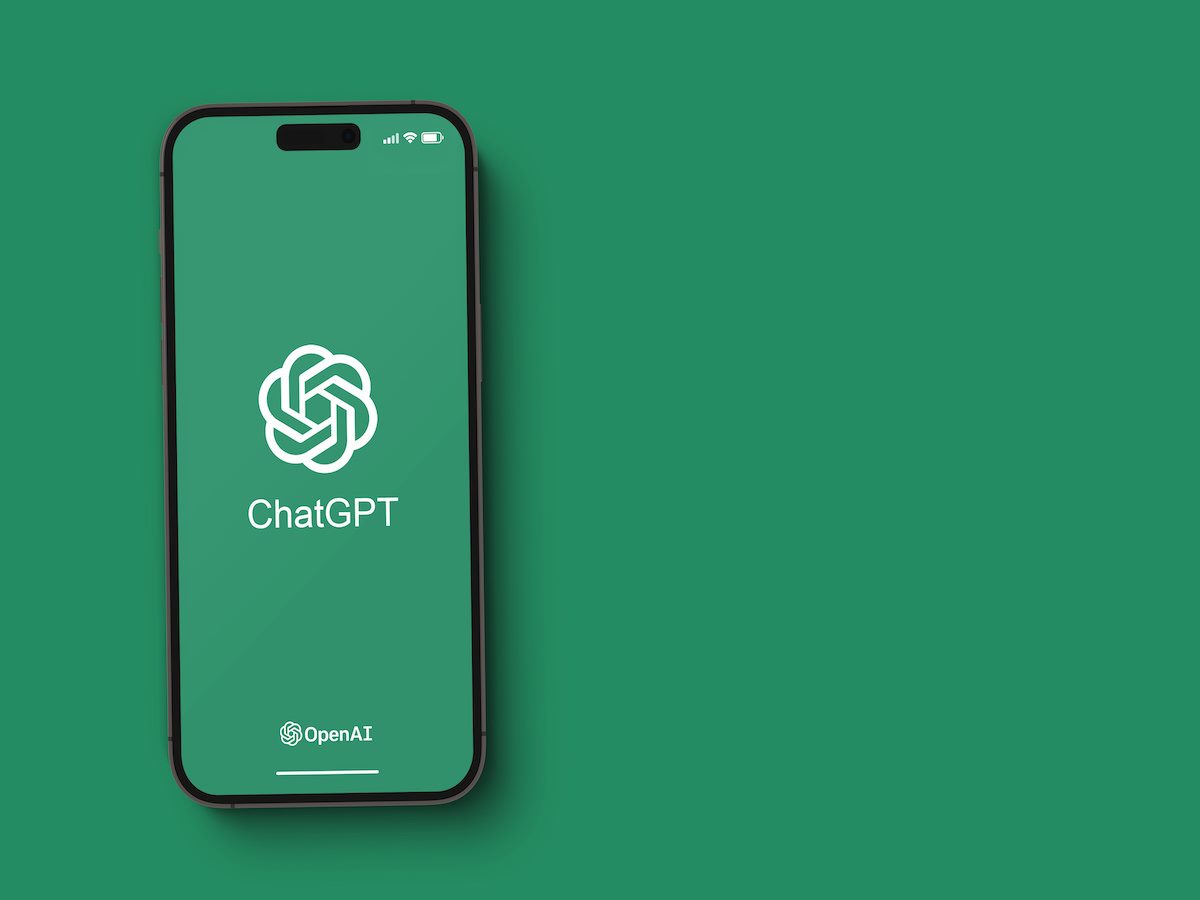OpenAI today unveiled ChatGPT Atlas, a web browser built around ChatGPT. The announcement positions the product not as a surface tweak but as a new way to rethink browsing entirely.
According to company officials, Atlas is designed so that ChatGPT “can come with you anywhere across the web — helping you in the window right where you are, understanding what you’re trying to do and completing tasks for you, all without copying and pasting or leaving the page.”
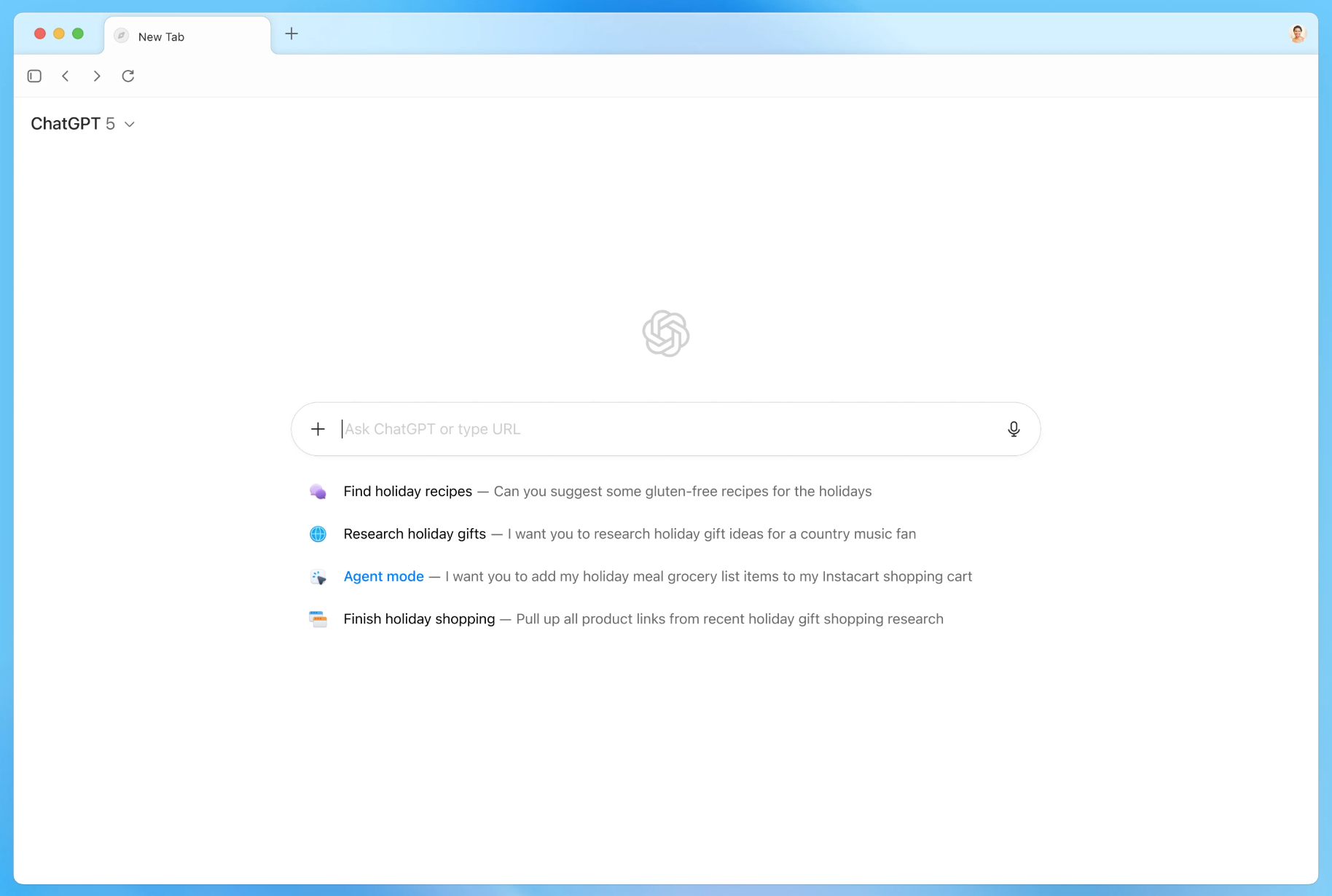
Table of Contents
- What ChatGPT Atlas Can Actually Do
- Why ChatGPT Atlas Might Be the Biggest Shift Since Google Search
- Getting Started With ChatGPT Atlas
- ChatGPT Atlas vs Perplexity's Comet
- Before You Switch: What to Know About Using ChatGPT Atlas
- Implications for SEO and Web Publishers
- The Browser That Could Change Everything — Or Not
- Frequently Asked Questions About ChatGPT Atlas
What ChatGPT Atlas Can Actually Do
Here’s a breakdown of ChatGPT Atlas’s key features:
- Deep integration of ChatGPT into the browsing workflow: Instead of toggling between browser and chatbot, Atlas places ChatGPT in the same window, ready to interpret what you're doing.
- Browser memories: With user control, ChatGPT can remember context from sites you visit — e.g., past job postings or pages you researched — to reuse later.
- Agent mode (preview): Available today for Plus, Pro and Business users, this mode lets ChatGPT act on your behalf — opening tabs, clicking links, doing research or shopping.
- Privacy and control: Users choose what ChatGPT can see and remember, can toggle visibility per-site or operate in Incognito mode where no memories are captured.
- Cross-platform promise: Atlas launches now on macOS for Free, Plus, Pro and Go users; Windows, iOS, Android versions are coming soon.
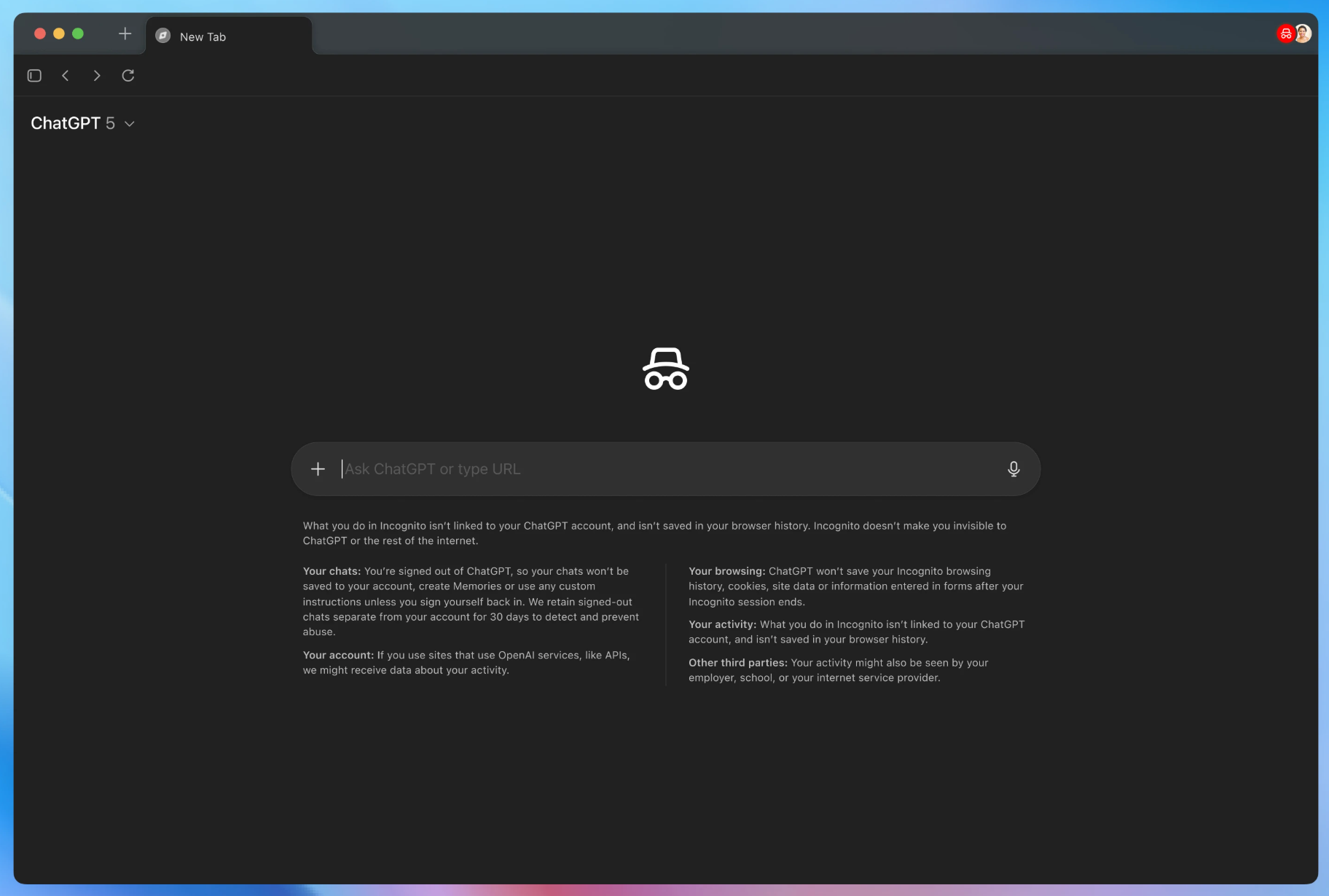
Related Article: OpenAI's ChatGPT Agent: What It Can Do & How to Use It
Why ChatGPT Atlas Might Be the Biggest Shift Since Google Search
"During lectures, I like using practice questions and real-world examples to really understand the material. I used to switch between my slides and ChatGPT, taking screenshots just to ask a question. Now ChatGPT instantly understands what I’m looking at, helping me improve my knowledge checks as I go."
- Yogya Kalra
Early ChatGPT Atlas Tester
ChatGPT Atlas's launch is more than a new browser, it's a shift in how we might use the web:
- Browsers have traditionally been passive — you type, search, open tabs. Atlas aims to make the browser an assistant, anticipating actions rather than just responding.
- The move places OpenAI in direct competition with giants like Google Chrome and legacy players in the browsing market, but via a new angle: AI-first experience.
- For users, this may mean fewer context switches, less manual copying/pasting of content into ChatGPT and more seamless workflows. For businesses and publishers, it prompts questions about how AI search and web traffic may evolve.
Getting Started With ChatGPT Atlas
Users can get started by downloading Atlas from chatgpt.com/atlas. Once you sign into ChatGPT, you can import your bookmarks, saved passwords and history from your existing browser.
Early testers report that features like “Re-open the shoes I looked at yesterday” or “clean up my tabs” now actually work — meaning natural-language commands start acting on your tab context.
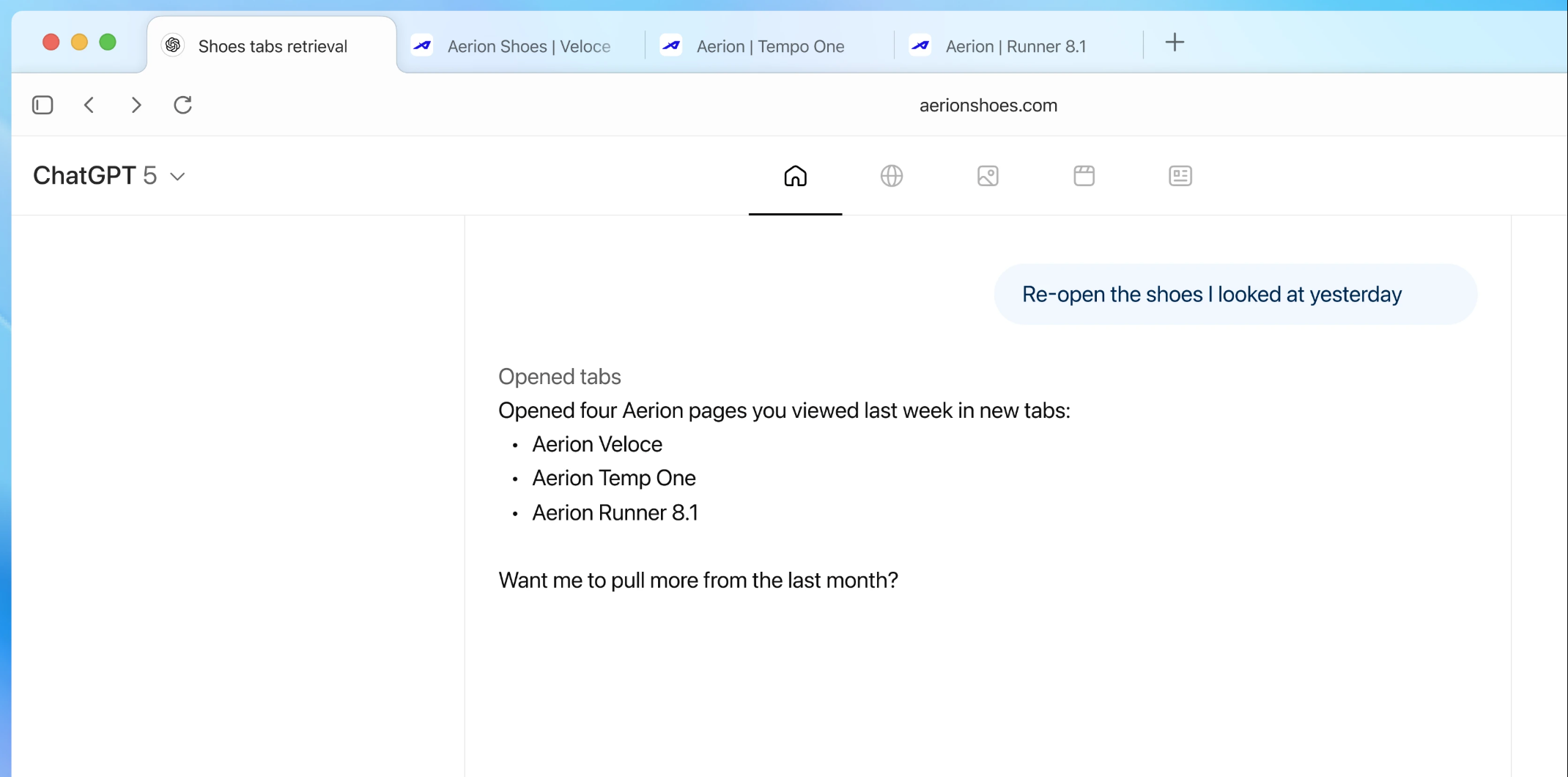
Example: ChatGPT opened four Aerion shoe pages in new tabs and asked the user if they wanted more from the past month.
ChatGPT Atlas vs Perplexity's Comet
One notable competitor to Atlas is the Comet browser from Perplexity AI, which also embeds agentic AI features directly in the browsing experience. Perplexity describes Comet as a “browser for agentic search.”
- Comet features are focused on autonomous task performance, such as summarizing content, automating workflows and integrating deeply with external tools and data.
- Comet has already been made freely available, positioning itself as a challenger in the AI‐browser market.
- Atlas meanwhile leans heavily into integration with the existing popular ChatGPT ecosystem, plus a focus on memory and agent-enabled browsing across tabs, tasks and context. Because of that, Atlas may appeal to users already embedded in the ChatGPT workflow.
- Both browsers, from a features perspective, highlight agentic browsing, but the differentiator may come down to ecosystem, user base, brand trust and timeline of rollout (Atlas currently available for macOS, others coming). Also, user-control and privacy settings could be a competitive advantage for Atlas.
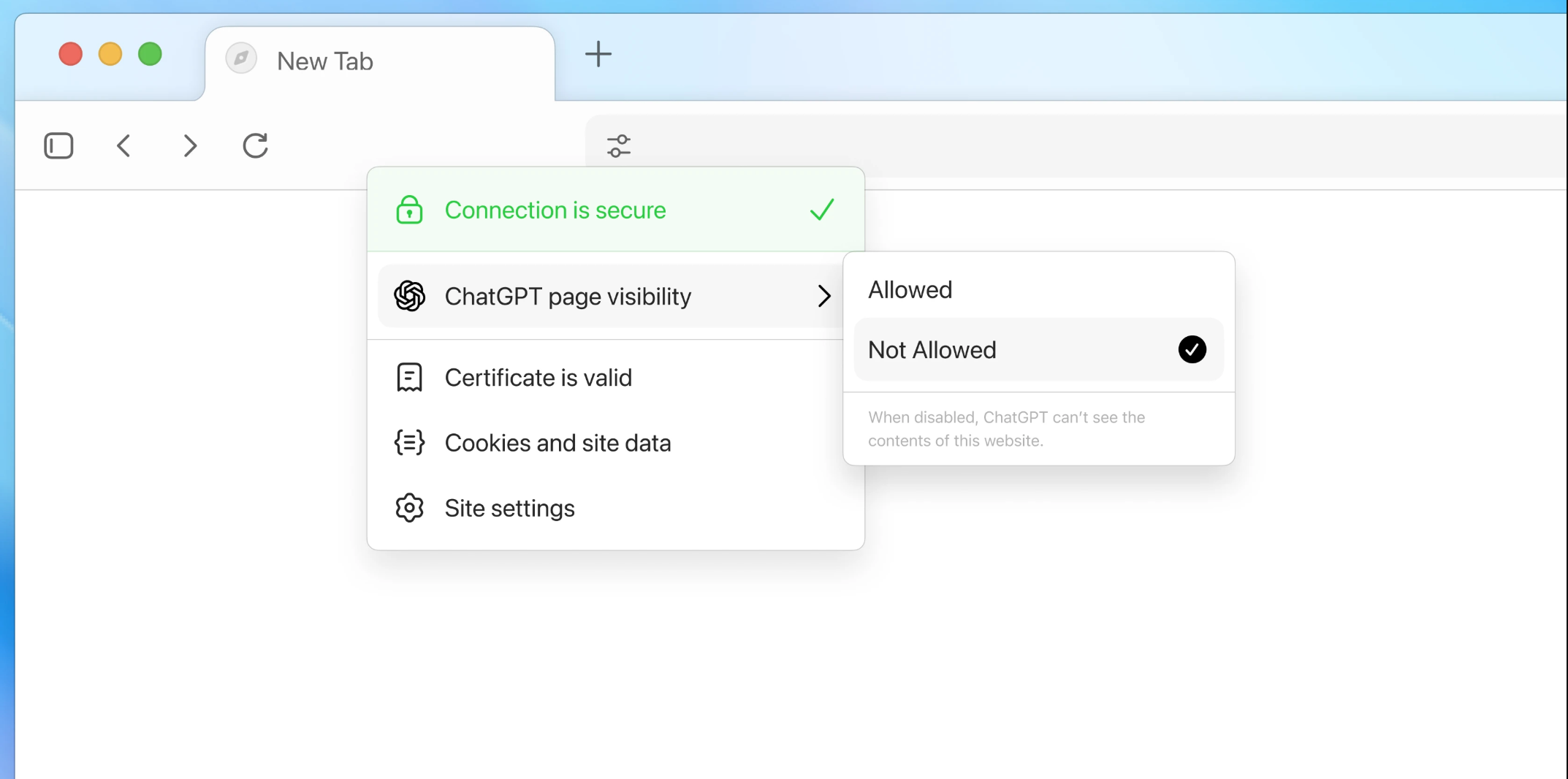
In short: Atlas competes in the growing field of AI-first browsers, and while Comet already offers many similar capabilities, OpenAI’s launch leverages its massive user base and brand recognition to try and jump ahead.
Before You Switch: What to Know About Using ChatGPT Atlas
- Complex workflows still risky: While the agent mode is powerful, OpenAI admits it “may make mistakes on complex workflows” and is still being improved.
- Privacy trade-offs: Browser memories and agent mode bring convenience, but also risk. OpenAI warns that agents could be vulnerable to hidden instructions or malicious sites.
- Adoption barrier: Convincing users to switch browsers is always hard. Despite the unique angle, getting people to move from Chrome, Safari or Edge won’t be trivial.
- Ecosystem and extensions: Since Atlas is built on Chromium according to reporting, compatibility should be feasible. But how existing extensions and workflows adapt remains to be seen.
Related Article: OpenAI's ChatGPT Instant Checkout: The Dawn of Conversational Commerce CX
Implications for SEO and Web Publishers
The arrival of AI-embedded browsers like Atlas carries major implications for search engine optimisation (SEO) and how web publishers attract traffic.
- Traditional SEO has been built around ranking for keywords and earning clicks on search result pages (e.g., via Google Search). With AI assistants built into browsers, users might no longer click through to websites as frequently — the assistant may summarize content directly or perform actions on the web.
- Publishers may face reduced referral traffic and fewer clicks as the browser becomes the interface and AI steps in between user intent and the web page. This could mean changes in monetization models, ad-revenue and brand exposure.
- A new paradigm has been emerging called Generative Engine Optimization (GEO), the idea that digital content must be optimized not just for search engines, but for generative AI agents that synthesise and cite content.
- For publishers, this means creating content that is scannable by AI, clearly attributed, structured and context-rich so that AI agents might reference it or drive users to it. Traditional backlink and keyword strategies may need to evolve.
- There is also a risk of “zero-click” outcomes where the user gets what they want inside the browser without visiting the publisher site, reducing traffic but intensifying the value of being the AI’s selected source. Publishers will need to adapt by focusing on authority signals, structured data and possibly direct integration with AI platforms.
The Browser That Could Change Everything — Or Not
ChatGPT Atlas is a bold and strategic move by OpenAI, one that seeks to transform the browser from a passive tool into an active assistant. Whether it becomes the new standard for web browsing or a niche product for power users remains uncertain, but as of today, the browser wars have entered their most interesting phase yet.
For those curious: if you’re on macOS, you can download and test it; if you’re elsewhere, keep an eye out for Windows, iOS and Android versions. Readiness, compatibility and trust will be key to its success.
